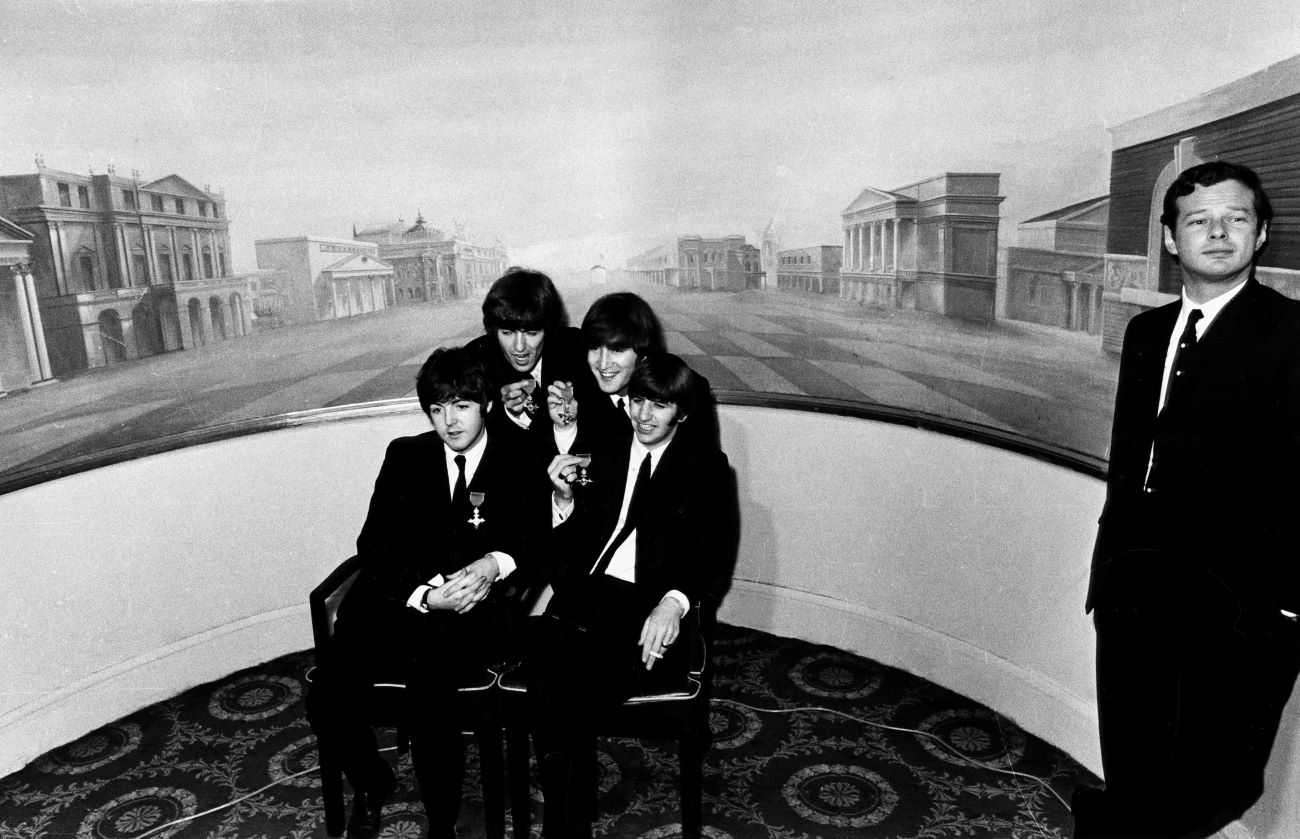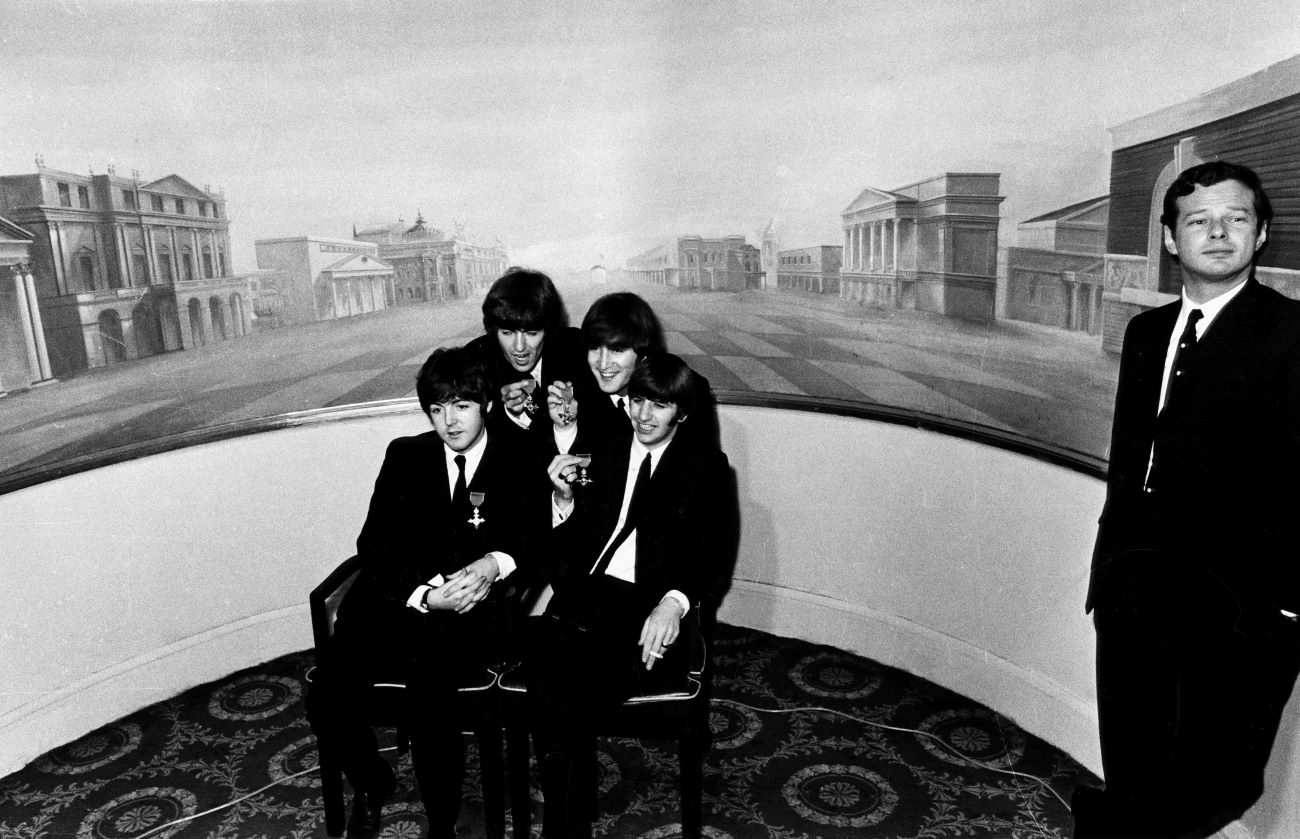
Beatles Manager Brian Epstein Was ‘Very Sad’ and ‘Pathetic’ When the Band Stopped Touring
In 1966, The Beatles breathed a sigh of relief when they decided to stop touring, but their manager, Brian Epstein, felt directionless. He had helped the band graduate from stages in claustrophobic Liverpool clubs to world tours. Epstein worried about his job when they stopped touring, even though they had no plans to break up.

Brian Epstein didn’t have any experience when he started to manage The Beatles
Epstein first discovered The Beatles after a customer inquired about one of their records at his family’s store. They didn’t have it in stock, but Epstein made it his mission to find it, especially after another customer requested it.
“I might have stopped there, but for the rigid rule I’d laid down that no customer should ever be turned away,” he explained, per the book The Beatles: The Authorized Biography by Hunter Davies. “I was also intrigued to find out why a completely unknown disk had been asked for three times in two days. Because on Monday morning, before I’d started making inquiries, two girls came in and asked for the same record.”
He had no prior management experience, but he offered his services to the group.
“I suppose it was all part of getting bored with simply selling records,” he said. “I was looking for a new hobby. The Beatles at the same time, though I didn’t know it and perhaps they didn’t either, were also getting a bit bored with Liverpool. They were wanting to do something new. To expand and get on to something new.”
He felt despondent when the band stopped touring
With Epstein, The Beatles found unprecedented global success. After just a few years, though, they were tired of the chaos of touring. Crowds mobbed them wherever they went, and they’d had more than enough “scrapes and near misses” with danger, according to George Harrison. They played their last show in San Francisco in 1966.
“There was a certain amount of relief after that Candlestick Park concert,” Harrison told Rolling Stone in 1987. “Before one of the last numbers, we actually set up this camera — I think it had a fisheye, a very wide-angle lens. We set it up on the amplifier, and Ringo came off the drums, and we stood with our backs to the audience and posed for a photograph, because we knew that was the last show.”
Epstein didn’t share the same sense of relief.
“During that last show in San Francisco, Brian was very sad and almost pathetic,” Nat Weiss, a lawyer for the band, said. “It was the first time I’d ever seen him pathetic. He suddenly said, ‘What do I do now? What happens to my life? That’s it. Should I go back to school and learn something else?'”
Weiss said Epstein only needed a moment to calm himself down.
“He was obviously greatly saddened,” Weiss said. “Then he took hold of himself and said no. He would carry on and do something.”
The Beatles felt lost when Brian Epstein died
In 1967, Epstein died of an accidental drug overdose. The band felt lost without his guidance.
“I mean, we’ve been very negative since Mr. Epstein passed away,” Paul McCartney said in The Beatles: Get Back. “And that’s why all of us, in turn, have been sick of the group. It’s [the] discipline we lack. We’ve never had discipline. We’ve had a sort of slight, symbolic discipline. Like Mr. Epstein.”


